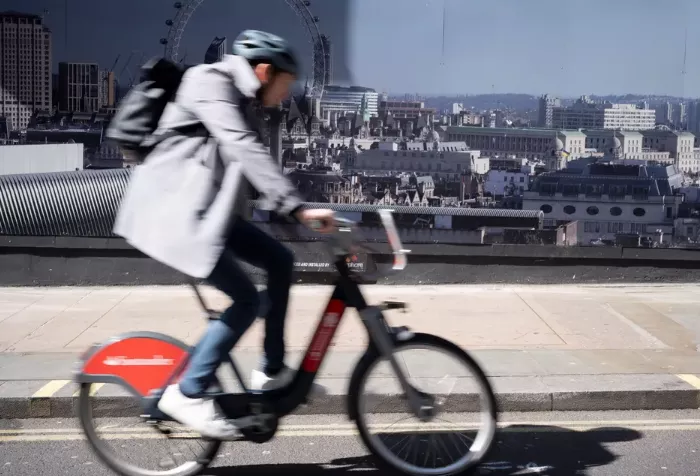Independent cycle traders in the UK have expressed frustration and disappointment over a recent BBC Panorama documentary titled E-Bikes: The Battle for Our Streets, which aired earlier this week. The program, presented by Adrian Chiles, examined the growing popularity of e-bikes across the country and the ongoing debate about whether they should be seen as a disruptive force or an eco-friendly alternative to traditional transportation.
A central focus of the documentary was the rising use of e-bikes in criminal activities, particularly in central London, but also in other major cities. However, many in the cycling industry, including the Association for Cycle Traders (ACT), have criticized the show for highlighting the negative aspects of e-bikes without giving adequate attention to their benefits.
Jonathan Harrison, director of the ACT, voiced his dissatisfaction with the program, saying it lacked a balanced perspective and failed to highlight the positive aspects of e-bikes. He stressed the need for a clearer distinction between legal e-bikes and illegal e-motorbikes. “I was really disappointed to see a programme like that without any meaningful consultation into the positives of e-bikes and very little differentiation between illegal and legal,” Harrison told Cycling Weekly.
Gavin Hudson, owner of Butternut Bikes in north London, shared similar concerns, arguing that the documentary only fueled negativity towards legal e-bike users. He suggested the documentary stoked unnecessary hysteria, making it more difficult for legitimate e-bike riders to coexist peacefully with the wider public. “I think the programme probably achieved what it wanted to. Nearly everyone watching it, either for or against e-bikes, was angry by the time the opening credits finished,” he said. “The question really needs to be, does the hysteria match the actual harm caused?”
Hudson pointed out that the majority of anti-social behavior associated with electric bikes stems from illegal e-motorbikes, not the legal e-bikes that people use for commuting and recreation. He expressed disappointment that the documentary’s portrayal of e-bikes failed to acknowledge this distinction. “We love getting people moving and hate the division that shows like this try to sow,” Hudson said.
In response to the documentary, the Bicycle Association (BA), which represents the UK’s cycling industry, lodged a formal complaint with the BBC. The BA requested that the term “e-bike” be removed from the title of the program, arguing that the content did not accurately reflect the nature of legal e-bikes. Peter Eland, the BA’s technical and policy director, emphasized that the public needed to understand the critical differences between legal e-bikes and illegal e-motorbikes. Eland expressed regret that the show featured an enthusiast with a collection of illegal e-motorbikes, rather than an industry expert to provide a more informed perspective.
Another key issue raised by the documentary was its suggestion that illegal e-bikes could be purchased through the Cycle to Work scheme. Hudson, along with other traders, was concerned this could tarnish the reputation of legitimate cycle retailers. “As a retailer, we are very careful to only sell or work on legal and safe e-bikes,” Hudson explained. He clarified that his business, Butternut Bikes, follows stringent practices to ensure that only legal e-bikes are sold or serviced, with a clear paper trail to ensure accountability.
Hudson also pointed out that the program’s portrayal of the Cycle to Work scheme as potentially enabling the purchase of illegal e-bikes was misleading. “The incidence of being able to buy an electric e-moped on a Cycle to Work scheme seems to be far more of a dodgy shop rather than widespread adoption of that,” he said. “We are seeing good numbers of customers who appreciate the value of a safe and reliable e-bike using the scheme as it is intended.”
In response to the criticism, a BBC spokesperson defended the documentary, stating that it aimed to explore both the benefits and growing concerns surrounding the use of e-bikes in the UK. The spokesperson explained that the film highlighted the positive environmental impact and convenience of e-bikes while addressing concerns raised by councils, police forces, and citizens about their misuse. The BBC emphasized that the documentary made an effort to distinguish between legal and illegal e-bikes, and encouraged viewers to watch the film themselves.
Despite the BBC’s defense, the backlash from independent cycle traders and industry representatives highlights ongoing tensions between the cycling community and concerns over e-bike regulation and misuse.
Related topics
- REI Cuts 428 Jobs, Shuts Down Adventure Programs
- Raleigh Reports £30 Million Loss Amid Industry Challenges
- Tom Pidcock Set to Make Q36.5 Debut at AlUla Tour

